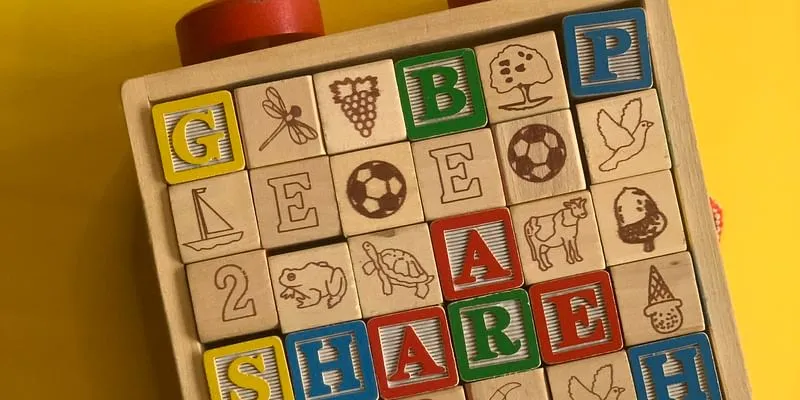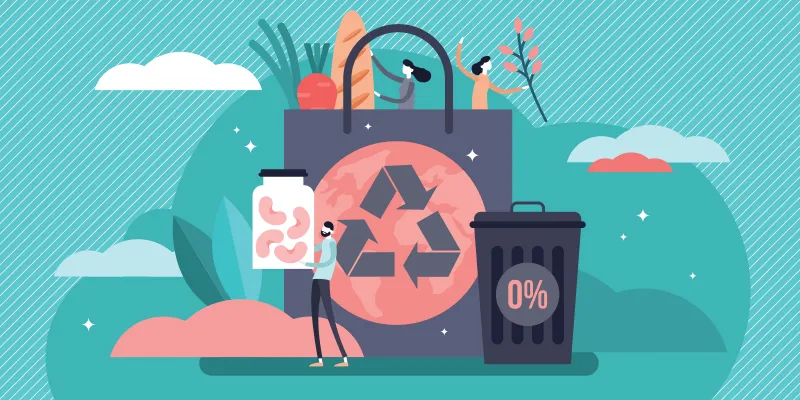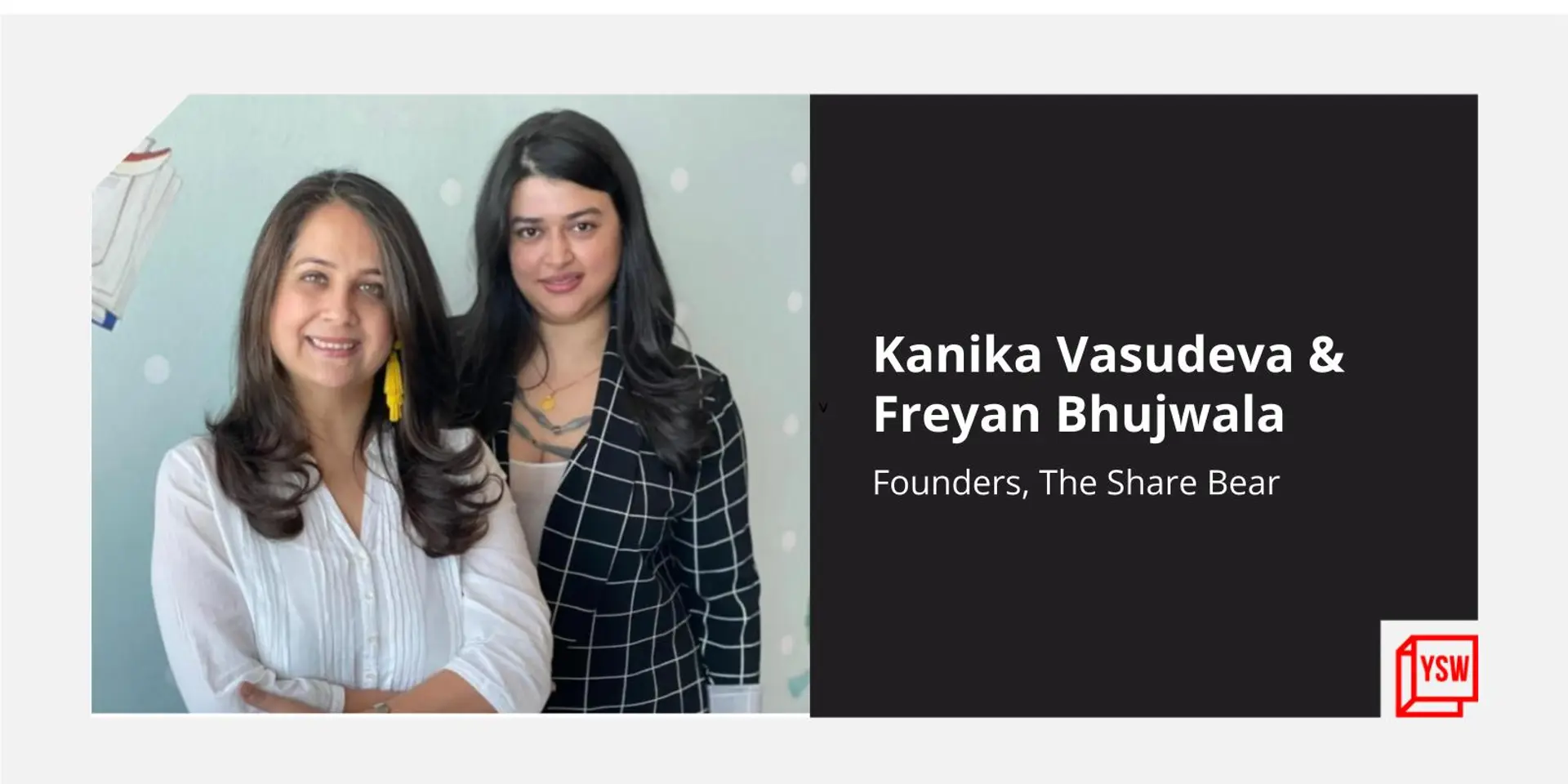This ecommerce platform allows you to buy and sell pre-loved children’s items without hassle
Mumbai-based The Share Bear is an ecommerce platform where one can sell and buy a large selection of pre-loved children’s items across categories.
Seventeen-year-old Swedish climate change activist Greta Thunberg has taught us that you are never too small to make a difference. Parents of young ones can do their bit to save the planet by passing on their children’s disused items to those who find them useful. Alternatively, they can purchase pre-loved products instead of splurging on new ones, to encourage the concepts of sustainability and frugality. Ably facilitating both these procedures is Mumbai-based startup , launched in 2021 by Kanika Vasudeva and Freyan Bhujwala.
“The Share Bear stands for sustainable living, mindful parenting and promoting a circular economy, in an easy and convenient manner. Our vision is to normalise the buying and selling of pre-loved items,” affirm the founders in a chat with YSWeekender.

How it all started
Kanika has a post-graduate degree in Social Communications and Media from Sophia’s Polytechnic, Mumbai. She has been part of the PR and Marketing team at Sony Pictures, has worked with Idream Productions and UTV and spent nine years at Fox Star Studios as VP International, Sales and Distribution.
Freyan, though originally from Delhi, has a post-graduate degree in Marketing and Advertising from St. Xavier’s Institute of Communication, Mumbai. She worked with JWT Advertising, was part of the marketing team at Fox Star Studios, and went on to become Head of Marketing at Maddock Films.
Having met at work, the founders have been friends for over ten years. “We had always wanted to do something together and felt that the kids space was an interesting one to explore. In February 2019, I gave birth to twins, and I’ve been conscious about raising them almost completely on pre-loved or pre-owned items. As the youngest kids in my friend’s circle, they were handed down almost everything from the beginning. Most of these items were in great condition - brand new or rarely used. That’s when I realised that there was a better, more sustainable way to give kids everything they need,” explains Kanika.
This philosophy resonated with Freyan, who adopts an eco-conscious approach in all aspects of her life. The pandemic further put things in perspective and they decided to explore this idea together. Both of them quit their jobs, paving the way for the launch of The Share Bear.
Operations began in October last year and currently they cater exclusively to patrons in Mumbai, however, by end-February 2022, their services will be available pan-India.
How it works
As a resale platform, The Share Bear accepts everything related to babies and children. Their product categories include toys, books, clothes, shoes, accessories, baby gear, baby essentials, rockers, bouncers, play-gyms, cribs, cots, beds, strollers, prams, car seats, highchairs, booster chairs, nursery décor and appliances as well as age-specific or theme-specific party décor.
Their most popular items are books, as they are offered at highly discounted prices, as well as branded toys like Magna Tiles, Melissa and Doug products, and more expensive items like cots and car seats, which are usually used for only a couple of years.

Getting listed on the platform is easy - to sell items, one starts by filling a form with multiple questions for every product, along with attaching pictures. The form is then checked by the back-end team before the product goes live on the website. Buying, on the other hand, works exactly as it does on regular ecommerce platforms. One can add the desired item to their cart and check out.
Social media platforms and WhatsApp groups are their main focus for spreading the word as of now. Moms who have been using the platform also happily share their experience with their family members and friends.
“There is some hesitation in buying pre-loved goods from strangers, but things are changing. To begin with, people were never averse to buying second-hand books, or using toys and clothes that had been handed down to them by friends and family. The recent popularity of online resale marketplaces like OLX, toy libraries and clothing rental stores, have also helped in changing this perception. However, many people are unfamiliar with our model. Through our platform, we hope to create awareness of a circular economy by showing them that the life of their products can be extended and enjoyed when used by someone else,” shares Freyan.
The founders feel that when people start engaging with the resale market, they really appreciate its many benefits - they get better prices for products, and their consumption is less taxing on the environment. Hence, the procedure induces overall happiness.
Their easy to use website gives users the option of remaining anonymous if they wish to avoid any haggling for price reductions. Further, they arrange the pickup and drop of the items, and in the spirit of staying truly sustainable, even reuse their packaging materials.
Growth so far
In 2015, the used-goods market in the country was valued at Rs 115,000 crore by Assocham, and was expected to reach $12-15 billion in 2020, indicative of a growing appetite for pre-owned goods. Hence, players like The Share Bear have made an astute entry into this segment.
The bootstrapped company began with an investment of Rs 15 lakhs and in the few months since its launch, has witnessed an average increase in sales of 20 percent month on month. This positive reception has the founders excited about expansion. Kanika says,
“We are definitely looking at expanding. We intentionally started small and restricted ourselves to Mumbai so we could understand the way this business works, especially the logistics part of it. We are now launching pan-India operations by the end of the month and intend on starting several warehouse facilities for The Share Bear throughout the country.”
The team acknowledges that the space is a competitive one. Freyan explains, “Most of the players in this market, started or gained momentum around the same time - after the pandemic. We started three months ago. People like Twice Treasured, As they Grow, SoldReSold have been around longer but none of them are really in the ecommerce space - as they function solely on Instagram.”
As all these platforms share the common goal of propagating sustainable living, and the industry is still nascent, the team feels there is enough space for everyone to thrive. Hence, they don’t see these platforms as competitors. Instead, they believe their actual competition is with fast fashion and big box stores, which encourage people to buy new and shiny things instead of preloved and preowned ones.
“We just wanted to make the system more organised, convenient and seamless - people don’t need to have discussions about prices or delivery and logistics, as we take care of it all, just like any big ecommerce player does. We do this to ensure that our business is scalable and does not need to be restricted to one city or country,” shares Kanika. Freyan adds,
“We pick up the products, check and verify them before they reach the buyer. This is time consuming and costly. But it helps us gain the trust of our patrons. This is evident from the testimonial we received from our first ever customer. She said that receiving the order was like receiving a care package from her mom, because we had packed the steriliser she had ordered inside a baby blanket, in keeping with our efforts to be sustainable. It was so lovely to hear that!”
Edited by Anju Narayanan









